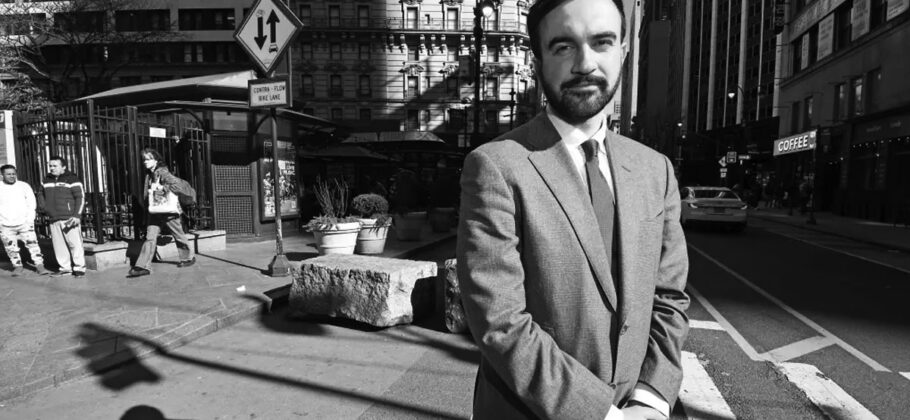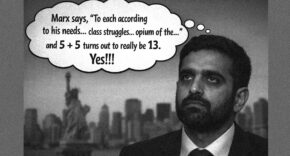New York City’s wealthiest developers and landlords are in full-blown panic mode over the sudden rise of Zohran Mamdani, the self-proclaimed democratic socialist whose housing proposals have been described as extreme and reckless. After Mamdani’s shocking victory in the Democratic primary against former Governor Andrew Cuomo, the city’s property power brokers are scrambling to figure out how to block what many are calling a potential economic disaster.
Greg Kraut, CEO of the prominent office landlord KPG Funds, summed up the desperation many feel when he said, “We’ve got to do something.” He added that developers are “literally shopping around for a new candidate” who can stop Mamdani before he gets into City Hall.
Rent Freezes and Taxes Ignite Alarm
At the center of the panic is Mamdani’s proposal to freeze rents on nearly one million rent-stabilized apartments. This plan alone has sent shockwaves through the real estate world. Landlords insist it will strangle their operating revenue and drive property values into the ground.
Danny Fishman, CEO of Gaia Real Estate, warned, “A Mamdani administration would be the death penalty for the city. And it would be the best thing to happen to Miami and Palm Beach since Covid.” Fishman has already decided to abandon the New York market entirely and shift his investments to Florida.
Paul Rahimian, who leads the private lender Parkview Financial, also voiced serious concerns. He said, “We might think twice” about pursuing new deals in the city if Mamdani’s policies become law.
These warnings are not just empty threats. Real estate stocks tanked immediately after Mamdani’s primary win. Shares of major landlords like SL Green Realty, Vornado Realty Trust and BXP dropped sharply on the news, although some of the losses were recovered a day later.
Mamdani has tried to soften his image recently, promising to work with private developers. But for many in the industry, his record speaks for itself. In a 2021 video that resurfaced after his victory, Mamdani declared that housing should be “de-commodified” and no longer treated as a profit-making product. “Why do so many people end up homeless?” Mamdani asked. “It’s not because there aren’t enough homes to go around. There are plenty of empty homes. No. It’s because housing people is not a primary goal of developers or landlords. Their goal, simply put, is to make a profit.”
His critics say this attitude is exactly why his proposals are so dangerous. “This is not a workable vision,” Fishman said. “This is ideological fantasy that will drive out investment.”
Radical Vision of Communal Housing
Some of Mamdani’s most controversial ideas go far beyond rent freezes. In the same video, he praised postwar Vienna for converting private housing into communal living spaces. He described a vision in which luxury condos would be replaced with housing that includes shared laundry rooms, communal kitchens, bathhouses, and food cooperatives. “Housing doesn’t have to be seen as a market at all,” he argued.
President Trump quickly seized on this rhetoric, branding Mamdani a “100% Communist Lunatic” and promising to intervene if necessary. Trump posted, “As President of the United States, I’m not going to let this Communist Lunatic destroy New York. Rest assured, I hold all the levers and have all the cards. I’ll save New York City and make it Hot and Great again, just like I did with the Good Ol’ USA.”
For many developers, the communal housing idea has only confirmed their worst fears. Scott Rechler of RXR Realty said if Mamdani wins, the industry will immediately start lobbying Albany to block his proposals. “We would actively work to make sure the state was muscular in protecting the long-term values and vitality of the city,” Rechler said.
Tax Proposals Rattle Business Leaders
Mamdani is also proposing new taxes on corporations and millionaires to fund his agenda. A recent poll found that while almost half of voters support raising corporate taxes to pay for affordable housing, support plunges to 36 percent when people are told it could drive businesses out of New York.
Mamdani has called for shifting the property tax burden away from “overtaxed homeowners in the outer boroughs” and onto wealthier, mostly white neighborhoods in Manhattan. Critics say this plan is divisive and would create new problems without fixing the city’s affordability crisis.
Kenny Burgos, who leads the New York Apartment Association, said he is spending hours every day making TikTok videos, recording podcasts and appearing on radio shows to warn people about the consequences of rent freezes and massive tax hikes. “I’ve taken the approach that I’ve found to be most successful,” Burgos said. “It’s social media.”
Kathryn Wylde, a major power broker in New York, recently convened an emergency meeting of about 15 top real estate and financial executives to decide what to do. According to a person present, the mood was grim. “The room was deeply worried,” the attendee said. No final decision was reached, but several executives agreed to start raising money for Eric Adams or any other viable challenger.
The Stakes Could Not Be Higher
Developers warn that if Mamdani’s plans are even partially successful, New York will face years of disinvestment and decline. Landlords point out that a rent freeze without financial assistance will push older buildings into disrepair, forcing tenants to live in worse conditions while property tax revenue falls.
Already, expenses for rent-regulated apartments have surged 22 percent per unit since 2020, outpacing revenue. According to the Community Preservation Corporation, nearly a third of loans for affordable buildings are at risk because landlords can no longer cover mortgage payments.
Howard Slatkin, executive director of the Citizens Housing & Planning Council, said Mamdani will face enormous obstacles even if he wins. “The rubber is going to meet the road on these housing policies,” Slatkin said. “It’s hard to talk about these plans without talking about the simmering distress within New York City’s affordable housing.”
Mamdani wants the city to borrow $70 billion to build 200,000 permanently affordable units over the next decade, but that would exceed the city’s debt limit by around $30 billion and require state approval. Rachel Fee, executive director of the New York Housing Conference, said, “It’s not something he can just implement on his own. It will take a political coalition to make this happen.”
Meanwhile, with rents already unaffordable and developers threatening to flee, the stakes for New York could not be higher. As Fishman put it bluntly, “If this goes forward, you’ll see a flood of capital out of New York that no one will be able to stop.”
Even if Mamdani accomplishes only part of his socialist agenda, landlords and business leaders warn that the city’s housing market, tax base, and investment climate may never recover. For now, New York’s real estate elite are bracing for what they see as an economic hurricane heading straight for City Hall.





